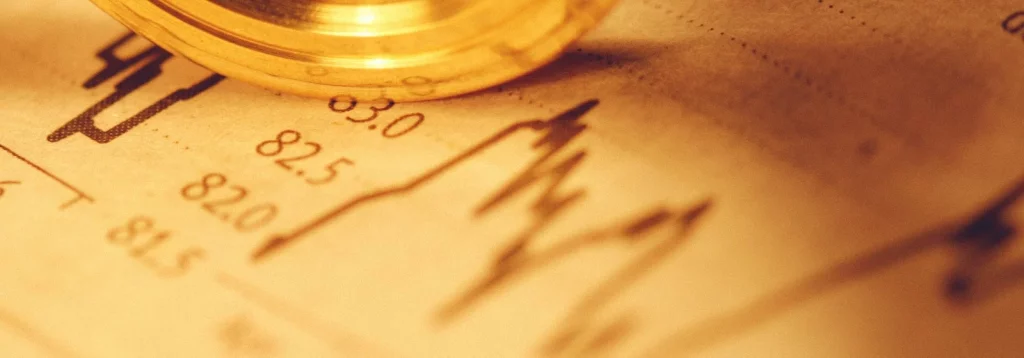Gold has been a highly sought-after precious metal throughout history. Its allure and value have made it a symbol of wealth and prosperity in various cultures. But have you ever wondered just how much gold exists in the world? In this article, we will explore the estimated quantity of gold that has been mined to date, its value, and the significance of this precious metal in the global economy.
The Quantity of Mined Gold Throughout History
According to the best estimates available, it is believed that approximately 208,874 tonnes of gold have been mined throughout history (Gold.org, 2023). This staggering figure indicates the substantial scale of gold mining operations worldwide. It is important to note that two-thirds of this total amount were mined since 1950, demonstrating the increased demand for gold in recent decades. What makes gold even more fascinating is its indestructibility, which means that almost all the gold ever mined still exists in some form today.
The Everlasting Value of Gold
Gold’s eternal nature is one of the reasons why it has maintained its value over time. Unlike many other commodities, gold does not corrode or tarnish. This quality has made gold a reliable store of wealth and a safe haven investment during times of economic uncertainty. Investors and central banks often hold gold as a hedge against inflation and currency fluctuations.
The Global Stockpile of Gold
As of November 2021, it is estimated that the total amount of gold in the world was around 201,296 tonnes (Visual Capitalist, 2021). To put this into perspective, if we consider the current price of gold at $1,756.66 per ounce, the total value of all the gold in the world would be a staggering $12.5 trillion. This immense value highlights the significance of gold in the global economy and financial markets.
Gold’s Use in Various Industries
Gold’s value extends beyond its status as a precious metal. It has a wide range of applications in different industries. One of the most notable uses of gold is in the jewelry industry, where it is prized for its beauty and durability. Gold is also used in electronics and technology due to its excellent conductivity and resistance to corrosion. Additionally, gold plays a vital role in dentistry, as it is used for dental fillings, crowns, and other dental restorations.
Gold Production and Mining
Gold production is an intricate process that involves exploration, mining, and refining. The mining of gold can take place through various methods, including open-pit mining, underground mining, and placer mining. Once the gold ore is extracted from the earth, it undergoes a refining process to remove impurities and create pure gold bars or other forms suitable for commercial use.
Environmental Impact of Gold Mining
While gold mining is a lucrative industry, it also has significant environmental implications. The extraction of gold often involves the use of chemicals such as cyanide, which can have detrimental effects on ecosystems if not properly managed. Additionally, the process of extracting gold can result in soil erosion, habitat destruction, and water pollution. To mitigate these impacts, sustainable mining practices and regulations are being implemented to minimize the environmental footprint of gold mining operations.
The Role of Gold in Monetary Systems
Gold has a long history of being used as a form of currency. Many ancient civilizations, such as the Egyptians and Romans, used gold coins for trade and commerce. In the modern era, gold has played a role in the international monetary system. The gold standard, which prevailed in the late 19th and early 20th centuries, pegged the value of currencies to a fixed amount of gold. Although the gold standard is no longer in widespread use, central banks around the world still hold significant gold reserves as a means of stabilizing their respective currencies.
The Future of Gold Mining and Exploration
As technology advances and new mining techniques are developed, the future of gold mining looks promising. Mining companies are constantly exploring untapped areas and implementing innovative methods to extract gold more efficiently and sustainably. Additionally, advancements in mining technology have made it possible to extract gold from lower-grade ores, expanding the potential reserves and extending the lifespan of mining operations.
However, it is crucial to strike a balance between the economic benefits of gold mining and its environmental impact. Sustainable mining practices, such as responsible waste management, reclamation of land, and minimizing the use of harmful chemicals, are essential for mitigating the ecological consequences of gold extraction. Governments, industry stakeholders, and environmental organizations are working together to establish regulations and standards that promote responsible mining practices.
The Significance of Gold in Culture and Society
Gold has held a special place in human culture and society for centuries. It has been revered as a symbol of wealth, power, and prestige across different civilizations. From ancient Egypt’s pharaohs adorning themselves with gold to modern-day societies using gold in ceremonies and celebrations, this precious metal continues to play a significant role in cultural and social traditions.
The Psychological Appeal of Gold
Gold’s psychological appeal cannot be understated. It evokes a sense of luxury, elegance, and security. The allure of owning gold is deeply rooted in human psychology, as it represents stability and a tangible asset that can weather economic storms. The sentimental and emotional value associated with gold makes it a cherished heirloom, passed down through generations.
Investing in Gold: A Hedge Against Uncertainty
Gold has long been considered a safe haven investment during times of economic uncertainty. When stock markets fluctuate, currencies devalue, or geopolitical tensions arise, investors often turn to gold as a means of preserving and diversifying their wealth. Gold’s historical track record of retaining value, its limited supply, and its universal acceptance make it an attractive option for investors seeking stability and long-term appreciation.
Ways to Invest in Gold
Investing in gold can be done through various channels. Here are a few common ways to invest in gold:
- Physical Gold: Investors can purchase gold bars, coins, or jewelry as a tangible asset. However, it’s important to consider storage and security arrangements for physical gold.
- Gold Exchange-Traded Funds (ETFs): ETFs are investment funds traded on stock exchanges that track the price of gold. They offer an opportunity to invest in gold without physically owning the metal.
- Gold Mining Stocks: Investing in shares of gold mining companies allows investors to gain exposure to the gold industry. However, these investments are subject to factors beyond the price of gold, such as company performance and operational risks.
- Gold Futures and Options: Experienced investors can participate in gold futures and options contracts, which involve speculating on the future price of gold. These derivatives require careful consideration and understanding of market dynamics.
- Invest to Kintech Asia Gold EA on Roboforex broker: Kintech Asia Gold EA is the best EA for Gold trading.
It’s important to conduct thorough research, understand the risks involved, and consult with a financial advisor before making any investment decisions.
FAQs
FAQ 1: Is gold a good investment for beginners? Answer: Gold can be a suitable investment for beginners looking to diversify their portfolio and hedge against economic uncertainties. However, it’s crucial to research and understand the market before investing and consider consulting with a financial advisor.
FAQ 2: Can the price of gold decline? Answer: Yes, the price of gold can fluctuate due to various factors such as market conditions, economic indicators, and investor sentiment. It’s important to remember that all investments carry some level of risk, including gold.
FAQ 3: Can I invest in gold through my retirement account? Answer: Yes, certain retirement accounts, such as Individual Retirement Accounts (IRAs), offer the option to invest in gold. These accounts provide tax advantages, and the investment is held within the account until retirement.
FAQ 4: Are there any tax implications when selling gold? Answer: The tax implications of selling gold depend on your jurisdiction and the specific circumstances. It’s advisable to consult with a tax professional to understand the tax regulations regarding the sale of gold in your area.
FAQ 5: Can I buy gold directly from a mine? Answer: Typically, individual investors do not purchase gold directly from mines. Instead, they acquire gold through authorized dealers, brokers, or reputable sources that offer gold products certified for purity and authenticity.
Conclusion:
Gold, with its enduring value, global significance, and cultural allure, continues to captivate our fascination. From its historical role as a currency to its modern-day status as a safe haven investment, gold remains a symbol of wealth and stability. With responsible mining practices and sustainable approaches, we can ensure the preservation of this precious metal for future generations. Whether you choose to invest in gold or appreciate its beauty and symbolism, gold’s timeless appeal will continue to shine bright.





